The Russian Government at the end of July 2013 approved the Law "On Water Supply and Sanitation". This project is designed to regulate the conditions for the provision of the relevant type of service. The Regulations stipulate the rules for water supply and sanitation. In this article, you can familiarize yourself with them.
General provisions
The current requirements govern the relationship of executive authorities of both federal significance and subjects of the Russian Federation. Moreover, these norms apply to settlements and cities with local self-government, to institutions that provide water disposal and supply, as well as transportation (including sewage). However, this includes any other coordinating activities in this area. These include, among other things, the provision of cold water (centralized and non-centralized water supply systems), both for drinking and technical purposes. Moreover, the same orders apply to the effluents that enter thecentral piping system.

Regulations for residential and multi-family buildings
It is worth noting separately that the relationship between the institutions of the water supply and sewerage industry and the owners (users) of residential premises (both in multi-apartment and in the private sector) are regulated by the Federal Law "On Water Supply and Sanitation" only in the part that is not regulated housing law. The same conditions apply to housing cooperatives (including consumer associations of any other specialization) and associations of owners of households and apartments. In addition, these circumstances apply to management companies whose job is to provide utilities, including cold water supply and sanitation to the owners (users) of the above premises.
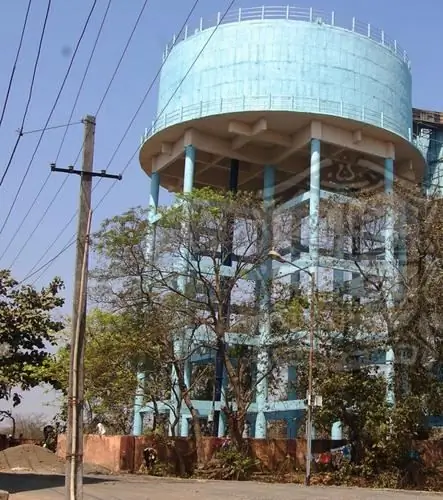
Basic concepts
The current Law "On Water Supply and Sanitation" establishes and clarifies a number of concepts. Let's consider some of them. The Regulation highlights the following points:
1. "Borders of balance sheet ownership" - are lines that separate the water supply and sanitation systems. They pass between the owners in accordance with the sign of ownership or possession on other legal grounds. There is a separation between objects in relation not only to centralized systems, but also to sewer and water networks.
2."Accident" is an event that is extremely dangerous. Usually leads to the fact that water supply and sanitation stops completely or partially. Moreover, in most cases it poses a threat to the environment, as well as human he alth. And it does not matter where the disaster occurred - on the central, sewer or water supply systems (including individual facilities).
3. "Control sample" is the analysis of wastewater that enters the central pipeline. It is carried out in order to accurately determine the properties and composition of the selected liquid. The fence is made from a sewer control well.
4. A "transit organization" is an institution that provides a water transfer service. An event of this kind also transports wastewater. For this purpose, our own water supply and sewerage system is used. It is worth noting that an individual entrepreneur can also act as the person of this organization.
5. A "control well" is a well that is designed to collect wastewater from a consumer. It is necessarily stipulated either in a separate contract, or in a single agreement on water supply and sanitation, or in another agreement. In addition, the last well located on the route of the pipeline from the consumer can also be used as a sampling container. However, only if it is not cut into the central tube.
6. "Surface sewage" is anything that enters the drainage system from the environment. BUTnamely: melt, drainage, rain, irrigation and infiltration emissions.
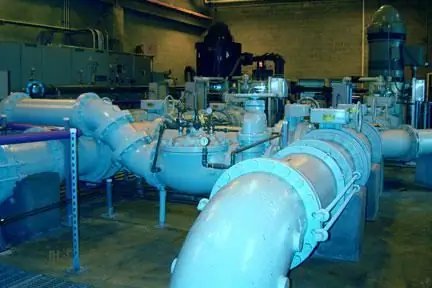
Emergencies: general provisions
In the event of a dangerous situation, special requirements are established in accordance with which water supply and sanitation is carried out. SNiP contains technical regulations and standards (both state and national). In addition, there is a specially designed instruction. It regulates the work with the drinking water system during an emergency.
Contracting procedure
Since water supply and sanitation is carried out on the basis of an agreement, there is a certain procedure for its preparation.
1. When the central pipeline is used, 3 kinds of contracts can be signed. Agreements are concluded separately for supply or water disposal. There is also a general agreement.
2. Transactions of this kind are always concluded according to the accepted models, which are established by the Russian Government. This document is certified, on the one hand, by the subscriber, and on the other hand, by a representative of the organization providing the service. The agreement, among other things, may specify tariffs for water supply and sanitation.
3. In the case when local authorities involve a third-party organization as a guarantor to provide a client with cold water and sewer networks, the above agreements are concluded directly with it.
4. During the periodIn the absence of a guaranteeing party, subscribers can sign contracts (including contracts of a single nature) with an institution to whose pipeline or waste system their facilities are connected.
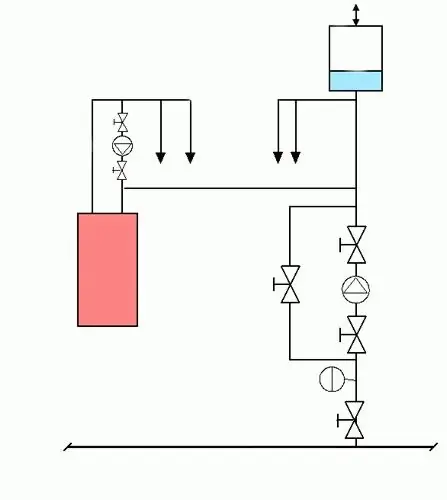
Grounds for agreement
A contract for water supply and sanitation is concluded only after the client submits an application (subscriber's application). Or upon receipt of such an offer from the institution providing the service or the guaranteeing organization (if any). It is worth noting that in the case when the tenant cannot personally be present at the conclusion of the agreement, an authorized representative can sign all the papers on his behalf. However, such actions are possible only with a power of attorney.
Terms for verification of documents
From the moment the subscriber submits an application to an organization providing plumbing services, 20 days are allotted for its consideration. In case of partial absence of the required information (documents), within 5 working days (from the date of application submission), the client receives a notification about the need to provide the institution with the missing information. As soon as such a message is sent to the applicant, consideration of the materials is suspended - until all the necessary information is received. These conditions are provided for by the current requirements (16 and 17 paragraphs). The water supply and sewerage institution has the full right to stop considering the option of connecting the subscriber to the pipeline or sewage system and return to him all documents withindicating the exact reason. It should be noted that such actions are possible only if the required information is not provided on time (that is, within 20 days from the date of sending the notification).
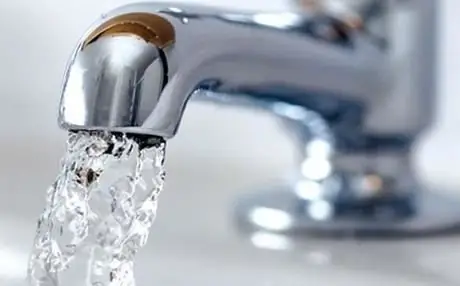
Contract execution process
When the company providing services or the guaranteeing organization (after choosing one) decides to conclude a transaction, the subscriber is sent a draft of the relevant agreement in 2 copies, which, among other things, contains a water supply and sanitation scheme. The client receives these documents regardless of the type of agreement. The package of papers is also the same if a person concludes an agreement only for the provision of cold water or for the use of a sewer system, or signs a general contract. This document is compiled on the basis of standard samples that have been reviewed and approved by the Russian government.
Reason for rejection
In the event that the water supply and sewerage organization receives applications from several subscribers to connect the same object to the central pipeline, consideration of this issue may be suspended. At the same time, certain deadlines are set. If the institution decides to suspend the consideration of applications, then all clients who have submitted documents undertake to provide evidence of their authority to sign an agreement on cold water supply, sanitation (or a general agreement) within 30 days. That is, to present an extract fromUnified state register for the real estate indicated in the appeal. If the required documents (confirming the authority of the client) are not submitted within the prescribed period, the water company has the right to stop accepting the application and return it to the subscriber with an indication of the reason. On the other hand, if the submitted documents comply with the current rules, the organization undertakes to send the client draft contracts (approved by the Russian Government) in 2 copies within 20 days from the date of receipt.
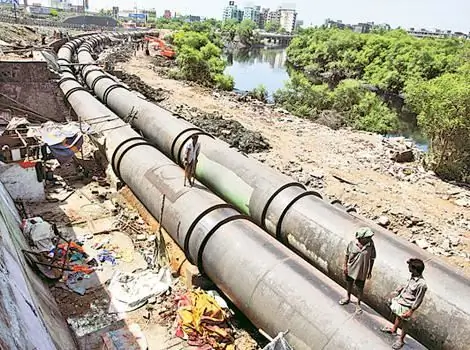
Terms for consideration of agreements by the applicant
The subscriber, after receiving the relevant papers no later than 30 days, must sign them and send one sample to the institution to whose sewage system or pipeline it will be connected. When an authorized person acts on behalf of the client, evidence confirming the authority of this person must be provided along with the documents. If during the specified period the client did not return draft contracts to the organization, then they are considered concluded on the conditions specified in the papers. The same decision is made in case of an untimely proposal to amend the developed agreement. It should be noted that amendments to the document are considered only if they do not contradict the adopted law.
Conditions for updating documents
From the moment of receipt of the draft contracts for connection to the drain system or the central pipeline, the subscriber within 30 days has the right to make a proposal to change thesubmitted papers. However, these corrections should not contradict the Federal Law, as well as the current requirements and standard samples adopted by the Russian government. The client sends the relevant adjustments to the organization with which the contract is concluded, in any convenient way. The main thing is that the subscriber receives confirmation of the delivery of these documents.
Timeline for consideration of changes
When the institution, to whose pipeline and sewage system the client plans to connect, receives an agreement with the indicated amendments, it undertakes to consider them within 5 days. Moreover, within the specified period, the company must take the necessary measures to eliminate all disagreements and return new models of agreements to the subscriber for familiarization and signing. The client, for his part, from the moment of receipt of the corrected documents, undertakes to consider and sign both copies of the new contract within the same time period. If the organization fails to make these changes, as well as untimely submission of the amended agreements, the applicant has the right to apply to the court. At the same time, he can put forward demands to force the company to conclude an agreement.
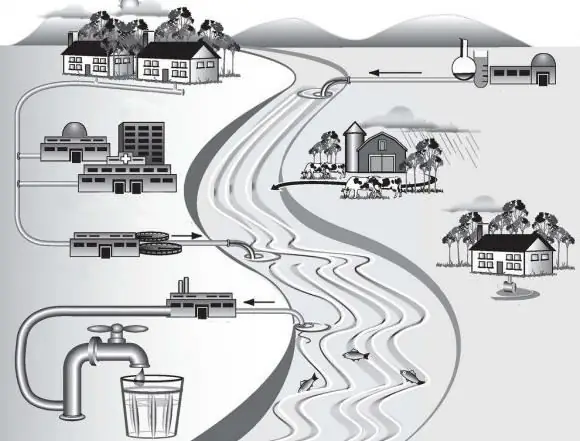
Terms of contract extension
The deal between the client and the water supply and sanitation company is concluded for a certain period, which is indicated in the agreement. If 30 days before the expiration of the specified date, neither party notifies of its termination, the period of validity of these documents will be extended for the sametime period. It should be noted that the same conditions apply to the introduction of possible changes or to the conclusion of an agreement with new requirements.
Payment
At the beginning of 2014, certain tariffs for water supply and sanitation were set for the population of Moscow (this applies to all residents of the region, except for the Novomoskovsky and Troitsky districts). Cold water costs 28.40 per cubic meter, water disposal - 20.15. Prices at the end of the year will be slightly higher. As of November 2014, the cost of a cubic meter of cold water will be 29.16, wastewater - 20.69.






